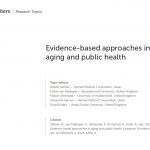![]() The House of Commons Science and Technology Committee has published their Science Budget report today, following a recent review. A summary of the contents can be found below.
The House of Commons Science and Technology Committee has published their Science Budget report today, following a recent review. A summary of the contents can be found below.
The United Kingdom is a science superpower. In terms of both quality and productivity, our research base punches above its weight’, setting a worldwide benchmark for excellence.
Government spending on the science base has been protected since 2010, with a flat-cash- ring-fenced budget for annual ‘resource’ spending distributed by the research councils, the Higher Education Funding Council and others. Annual ‘capital’ budgets have varied. The Government has already announced that capital spending within the science budget will be protected — in real terms — up to the end of 2021. The Government’s Spending Review on 25 November will determine the science — and innovation — budget allocations for the rest of this Parliament.
The UK has fallen behind its competitors in terms of total R&D investment and this will put UK competitiveness, productivity and high-value jobs at risk if it is not reversed. The Government should produce a long term ‘roadmap’ for increasing public and private sector science R&D investment in the UK to 3% of GDP — the EU target. This would send an important signal about the long term stability and sustainability of our science and innovation ecosystem, supercharging private sector R&D investment from industry, charities and overseas investors alike.
A more robust system is needed to integrate capital and resource funding allocations. The Government should urgently review existing capital allocations to ensure sufficient resource is in place to fully ‘sweat our assets’. Sufficient resource funding will only materialise, however, with an upward trajectory in the resource budget.
The Spending Review is being conducted under present accounting protocols, dealing with capital and resource budgets for science separately. ‘ESA-10’ accounting rules will in future count resource expenditure on R&D as capital, reflecting the fact that all expenditure on science research is an investment — an asset — in future economic capacity. The Government in the Spending Review should make it clear that this rules revision will not be used as a means to change the underlying funding settlement.
The ‘dual support’ system has produced a world class and highly efficient system for scientific research. Any significant changes to this system, including the balance of funding between research councils and university funding councils, would require a clear justification, which has yet to emerge. The Government should make clear its continued commitment to the dual support system, and the previous Government’s 2010 iteration of the Haldane Principle in the forthcoming Spending Review. A significant element of research funding should continue to be channelled though both the research councils and the higher education funding authorities. Clear justification will also be needed for any significant change in funding allocations between the research councils, and we caution against a radical reorganisation which could potentially harm the research programme.
Any expansion of the innovation catapult network should not come at the expense of other innovation priorities. The Government should focus on consolidating the existing catapults, to ensure that all will have the necessary operating resource and business strategies to operate at peak capacity. To show a clear commitment to innovation more generally, the Government should ring-fence Innovate UK’s budget.
The Government should also retain the current system of innovation grants — rather than loans — as a key policy tool, alongside R&D tax credits, for de-risking innovation investment.
The Spending Review will have a profound impact on our science base and our future prosperity. We have to get it right. We have a duty to take care that our spending and structural decisions in this area do more than merely maintain the status quo. If we get our spending priorities, our policies, regulatory frameworks or our immigration policy wrong, we will be on the wrong side of history. The Government must ensure that the UK remains a scientific superpower.
The Association of Research Managers and Administrators (ARMA) submitted evidence to this report, which can be found here.











 New eBook published in April
New eBook published in April Café Scientifique Tuesday 4 June 2024 – How can we become more resilient in the face of multiple risks and hazards?
Café Scientifique Tuesday 4 June 2024 – How can we become more resilient in the face of multiple risks and hazards? MSCA Postdoctoral Fellowships 2024
MSCA Postdoctoral Fellowships 2024 Horizon Europe News – December 2023
Horizon Europe News – December 2023